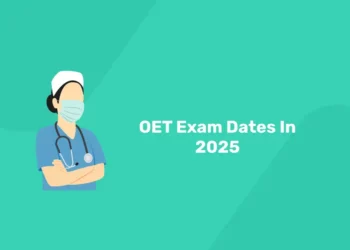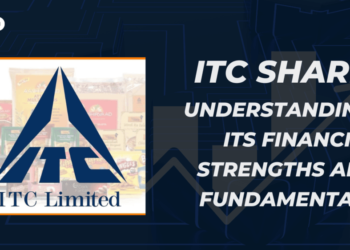Table of Contents
What exactly is UPSC? And how is it different from IAS? These terms are often used interchangeably, which creates confusion for beginners. In this blog, we will learn everything about UPSC. How it is different from IAS. We will try to understand the exam process of UPSC, eligibility, UPSC Full Form etc in this blog. We will also provide you with some preparation tips to get you started on the right path.
So, whether you are someone who dreams of becoming an IAS officer or simply wants to understand what UPSC is, this guide will help you unravel everything step-by-step.
Prepare for UPSC Exam! Download Entri App
UPSC Full Form
Let’s begin with the basics. The UPSC full form is Union Public Service Commission. It is a central agency responsible for conducting exams to recruit candidates into the Indian civil services, defense services, and other government departments.
The Role of UPSC
UPSC serves as an independent authority that ensures the recruitment process for various government roles is conducted in a fair and transparent manner. It conducts a wide range of examinations, including:
- Civil Services Examination (CSE) (which includes IAS, IPS, IFS, etc.)
- Engineering Services Exam
- Combined Defence Services Exam
- Indian Forest Service Exam
- Indian Economic Service/Indian Statistical Service Exam
- Combined Medical Services Examination, and many more.
UPSC was established in 1926 and, over the decades, it has earned its reputation as one of the most respected constitutional bodies in India. Though UPSC conducts several exams, the most popular one is the Civil Services Examination (CSE), which recruits for IAS, IPS, IFS, and other services.
Difference Between UPSC and IAS
1: Which one of the following is not a Harappan site?
While UPSC and IAS are often used together, they are not the same thing. Let’s clarify the difference:
What is IAS?
IAS stands for Indian Administrative Service. It is one of the prestigious services under the UPSC Civil Services Examination (CSE). Clearing the UPSC exam gives candidates the opportunity to join various services, and IAS is just one of them. In other words, IAS is a service, while UPSC is the commission that conducts the exam to recruit IAS officers.
Key Differences Between UPSC and IAS:
- UPSC is an exam-conducting body, while IAS is one of the services you can join by clearing the UPSC CSE.
- The UPSC exam recruits for various services like IAS, IPS (Indian Police Service), IFS (Indian Foreign Service), IRS (Indian Revenue Service), etc.
- IAS officers primarily handle administrative roles and are posted as District Collectors, Secretaries in Government Departments, etc.
UPSC Civil Services Examination (CSE) Overview
The UPSC Civil Services Examination (CSE) is a competitive exam conducted by UPSC to recruit candidates for the Indian Administrative Service (IAS), Indian Police Service (IPS), Indian Foreign Service (IFS), and other central government services.
Stages of the UPSC CSE:
- Preliminary Examination (Prelims)
- Objective-type questions (multiple choice)
- Two papers: General Studies (GS) Paper I and General Studies Paper II (CSAT)
- This is a qualifying exam. The marks in Prelims do not count towards the final ranking.
- Main Examination (Mains)
- Descriptive (written) exam
- Nine papers in total, including one essay paper, four general studies papers, and two papers on optional subjects
- The Mains exam determines your rank along with the Interview.
- Personality Test (Interview)
- A personal interview conducted by a panel
- Tests your personality, decision-making skills, and knowledge of current affairs
Through these three stages, UPSC selects candidates for various services, and their performance determines which service they qualify for, such as IAS, IPS, or IFS.
Services Recruited Through UPSC CSE:
- Indian Administrative Service (IAS)
- Indian Police Service (IPS)
- Indian Foreign Service (IFS)
- Indian Revenue Service (IRS)
- Indian Railway Traffic Service (IRTS)
- Indian Postal Service and many more
Eligibility Criteria for UPSC
To be eligible for the UPSC Civil Services Examination, candidates need to meet specific criteria in terms of age, educational qualification, and nationality.
Basic Eligibility Criteria:
- Nationality:
- For IAS and IPS, the candidate must be a citizen of India.
- For other services, they can be a citizen of India, Nepal, Bhutan, or a Tibetan refugee who came to India before 1st January 1962.
- Educational Qualification:
- A bachelor’s degree from a recognized university is the minimum educational qualification.
- Final-year students can apply, but they need to submit proof of their degree before the Mains exam.
- Age Limit:
- The minimum age to apply is 21 years, and the maximum age is 32 years for general category candidates.
- Relaxations are provided for SC/ST (5 years) and OBC (3 years) categories.
- Candidates from reserved categories and those with disabilities have additional age relaxations.
Number of Attempts:
- General category: 6 attempts
- OBC: 9 attempts
- SC/ST: Unlimited attempts (until the upper age limit)
How to Prepare for UPSC
Preparing for the UPSC Civil Services Examination (CSE) can feel overwhelming, especially given the vast syllabus and high competition. However, with a well-planned approach, the journey becomes more manageable and rewarding. Here’s a guide to help you kickstart your UPSC preparation.
Key Aspects of UPSC Preparation
- Understanding the Syllabus:
Familiarize yourself with the complete UPSC syllabus, especially for Prelims and Mains. The syllabus is your roadmap, and knowing it thoroughly helps you filter important topics and stay focused. - Choosing the Right Optional Subject:
The Mains examination requires you to pick one optional subject. Choose a subject you are comfortable with, ideally one that aligns with your academic background or interests. Popular optional subjects include:- History
- Geography
- Public Administration
- Sociology
- Anthropology, etc.
- Make a Study Plan:
Consistency is key to UPSC preparation. Create a realistic study timetable covering all major topics, and include time for revisions and mock tests. Here’s how you can break it down:- Daily Routine: Allocate time slots for reading newspapers, studying specific topics, and practicing questions.
- Weekly Goals: Focus on completing a section of the syllabus and revising the previous week’s content.
- Monthly Milestones: Ensure that you cover major chunks of the syllabus and take full-length mock tests.
- Focus on NCERT Books:
NCERT books from class 6 to class 12 are a crucial foundation for your preparation. They are simple, clear, and help you build basic concepts, especially in subjects like history, geography, polity, and economics. - Current Affairs:
Reading newspapers (such as The Hindu or Indian Express) daily is essential. Focus on topics related to government policies, international relations, economics, and social issues. Apart from newspapers, refer to magazines like Yojana or Kurukshetra and trusted online sources for current affairs updates. - Mock Tests and Previous Year Papers:
Solve as many mock tests and previous year question papers as possible. This will help you understand the exam pattern, manage time effectively, and improve accuracy.
Recommended Study Materials:
- Polity: Indian Polity by M. Laxmikanth
- Economy: Indian Economy by Ramesh Singh
- History: India’s Struggle for Independence by Bipan Chandra
- Geography: Certificate Physical and Human Geography by G.C. Leong
- Ethics: Ethics, Integrity, and Aptitude by Subba Rao and P.N. Roy
How to Start Your Preparation:
- Begin with NCERTs: As a beginner, start with basic NCERT textbooks. They provide clarity on fundamental concepts and give you a strong foundation.
- Create a Daily Routine: Allocate time for reading newspapers, studying for Prelims and Mains, and revising. Consistency is crucial for cracking UPSC.
- Join Coaching (if needed): While many aspirants clear UPSC without coaching, some find it helpful. If you feel the need for structured guidance, consider enrolling in a coaching institute or following online courses like Entri’s UPSC online coaching.
Why Write the UPSC Exam?
The decision to pursue UPSC is often driven by multiple factors, ranging from career growth to a desire to contribute to society. Here are some compelling reasons why candidates aim for UPSC:
1. Prestige and Honor:
- Civil Services is one of the most prestigious career paths in India. The Indian Administrative Service (IAS), Indian Police Service (IPS), and other services offer immense respect and recognition in society.
- Being a part of the civil services means contributing directly to national development and governance.
2. Diverse Career Opportunities:
- Clearing the UPSC CSE opens doors to various services such as IAS, IPS, IFS, IRS, and more, each offering different but significant roles in the functioning of the country.
- IAS officers serve in administrative roles, IPS officers work in law enforcement, and IFS officers represent India internationally.
3. Job Security and Benefits:
- Civil services offer unmatched job security, unlike many other private-sector jobs.
- Along with security, civil servants enjoy numerous perks such as official residences, vehicles, healthcare benefits, and a government pension.
4. Power to Influence Change:
- As a civil servant, you have the authority to implement government policies, drive economic growth, improve infrastructure, and work towards the upliftment of marginalized communities.
- Many aspirants are motivated by the idea of being at the forefront of policy-making and governance.
5. Leadership and Responsibility:
- Civil servants hold leadership positions in various government departments. IAS officers, for example, manage an entire district, make crucial decisions, and handle crisis situations like natural disasters.
Who Should Write the UPSC Exam?
The UPSC examination is one of the toughest in India, so it requires a certain kind of mindset and long-term dedication. Here’s a quick breakdown of who would be the ideal candidates to pursue this journey:
1. People with a Desire to Serve the Nation:
- If you have a deep-rooted desire to contribute to nation-building and improve the quality of life for citizens, UPSC can be your platform.
2. Individuals with Strong Leadership Qualities:
- UPSC demands leadership, decision-making, and problem-solving skills. If you’re someone who enjoys taking on challenges and leading others, civil services might be the right path.
3. Those Ready for a Long-Term Commitment:
- The UPSC journey is a marathon, not a sprint. It requires patience, dedication, and consistent effort over months, and sometimes years. You should be ready to invest time and energy in preparation.
4. People with Good Analytical Skills:
- Civil services require critical thinking and analysis of complex issues, such as governance, law enforcement, and foreign policy. If you’re someone who enjoys analyzing and understanding broad topics, UPSC will align with your interests.
5. Aspirants Passionate about Learning:
- Preparing for UPSC means acquiring knowledge in diverse fields like history, economics, geography, and international relations. If you love learning new things, UPSC preparation can be intellectually fulfilling.
Common Challenges and How to Overcome Them
The road to cracking the UPSC exam is not easy. Aspirants often face a range of challenges, but with the right approach, these can be overcome.
1. Extensive Syllabus:
- The UPSC syllabus is vast and can seem intimidating. The key is to break it down into smaller, manageable chunks. Focus on mastering one topic at a time and revise consistently.
2. Time Management:
- Balancing multiple subjects and current affairs can be tough. Creating a structured study timetable and sticking to it is crucial. Prioritize topics based on their importance in the syllabus.
3. Dealing with Failure:
- Many aspirants don’t clear the exam in their first attempt. It’s important to remember that failure is a part of the process. Learn from your mistakes, and treat each attempt as a stepping stone toward success.
4. Staying Motivated:
- The preparation phase can be long and tiring. To stay motivated, break down your goals, celebrate small victories, and surround yourself with a positive support system.
5. Keeping Up with Current Affairs:
- Current affairs play a crucial role in both Prelims and Mains. Make sure you’re reading newspapers daily and consolidating your notes to stay up-to-date.
Prepare for UPSC Exam! Download Entri App
UPSC Full Form: Conclusion
The UPSC Civil Services Examination is not just an exam; it’s a journey that requires determination, discipline, and a deep sense of responsibility toward the nation. It opens up opportunities for individuals to take part in the governance and development of India while offering a prestigious career path that combines leadership, respect, and job security.
For those passionate about making a difference, UPSC is one of the most rewarding and impactful career paths in India. Whether you aim to become an IAS officer, IPS officer, or serve in any other capacity, the journey is filled with immense learning and personal growth.
So, if you are ready to take on the challenge and embark on this exciting journey, the UPSC awaits you! All the best!
Frequently Asked Questions
What is the full form of UPSC?
The full form of UPSC is Union Public Service Commission. It is a central recruiting agency in India that conducts exams for various civil services and other government jobs.
What are the main exams conducted by UPSC?
UPSC conducts various exams, the most notable being:
- Civil Services Examination (CSE) (for IAS, IPS, IFS, etc.)
- Engineering Services Exam (ESE)
- Combined Defence Services Exam (CDS)
- Indian Forest Service Exam (IFS)
- Indian Economic Service/Indian Statistical Service Exam
- Combined Medical Services Examination
What are the stages of the UPSC Civil Services Examination (CSE)?
The UPSC CSE has three stages:
- Preliminary Examination (Prelims) – Objective type (multiple choice questions)
- Main Examination (Mains) – Descriptive (written exam)
- Personality Test (Interview) – Personal interview with a UPSC panel
What is the eligibility to appear for the UPSC exam?
- Age limit: 21 to 32 years (general category; relaxations for reserved categories)
- Educational qualification: A bachelor’s degree from a recognized university
- Nationality: Indian citizens for IAS and IPS; certain exceptions for other services
How many attempts can a candidate make for the UPSC exam?
- General category: 6 attempts
- OBC: 9 attempts
- SC/ST: Unlimited attempts (until they reach the age limit)












